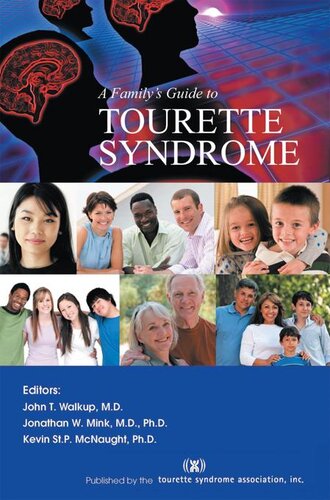

Most ebook files are in PDF format, so you can easily read them using various software such as Foxit Reader or directly on the Google Chrome browser.
Some ebook files are released by publishers in other formats such as .awz, .mobi, .epub, .fb2, etc. You may need to install specific software to read these formats on mobile/PC, such as Calibre.
Please read the tutorial at this link: https://ebookbell.com/faq
We offer FREE conversion to the popular formats you request; however, this may take some time. Therefore, right after payment, please email us, and we will try to provide the service as quickly as possible.
For some exceptional file formats or broken links (if any), please refrain from opening any disputes. Instead, email us first, and we will try to assist within a maximum of 6 hours.
EbookBell Team

4.1
40 reviewsProviding authoritative and up-to-date medical and scientific information about Tourette syndrome, A Family's Guide to Tourette Syndrome speaks to patients, families, care providers, academic institutions, and medical centers in easy-to-understand language about this neurodevelopmental disorder that affects children, adolescents, and adults worldwide. Each chapter is authored by leading neurologists, psychiatrists, psychologists, scientists, and others with expertise and research interests in Tourette syndrome.
Praise for A Family's Guide to Tourette Syndrome
"I am delighted to see the breadth and wealth of valuable clinical and scientific findings that have been gathered together in this comprehensive resource for families. The information provided in this book is testimony to the talent, abiding intellectual curiosity, and dedication to compassionate care and sheer persistence of each of the professionals who have contributed chapters. Their common goal was clear and selfless—to uncover sound medical and scientific data that could provide much needed answers to the baffling complexities of Tourette syndrome. A mere two decades ago, it was clear to all in the field that the prospect of obtaining sufficient funding to explore more deeply the intriguing preliminary findings uncovered about the disorder was all but non-existent. Simply put—other research funding priorities prevailed at the time. And so we can appreciate that the decision by each of them to dedicate their professional efforts to the study of Tourette syndrome is especially laudable. And for this we all owe the contributing authors a profound debt of gratitude."
—Sue Levi-Pearl, Emeritus TSA Vice President
Medical and Scientific Programs